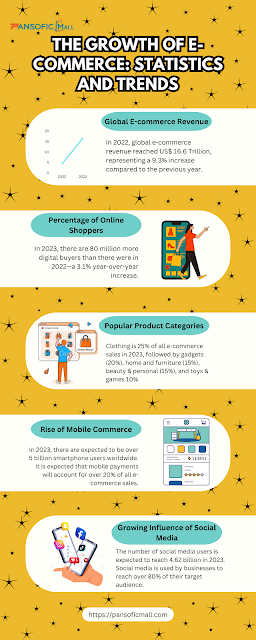"Exploring Sugar-Free Sweeteners: A Comprehensive Guide to Healthier Alternatives"
In recent years, sugar-free sweeteners have gained popularity as people seek healthier alternatives to sugar. Whether you're managing diabetes, trying to lose weight, or simply looking to reduce your sugar intake, these sweeteners offer a way to enjoy sweetness without the health risks associated with sugar. However, with so many options available, it can be challenging to choose the right one. This blog will explore the different types of sugar-free sweeteners, their benefits, potential risks, and how they compare to traditional sugar. We'll also provide tips on how to incorporate these sweeteners into your diet and answer common questions about their safety and effectiveness.
What Are Sugar-Free Sweeteners?
Sugar-free sweeteners, also known as artificial sweeteners or sugar substitutes, are compounds that provide sweetness without the calories of sugar. These sweeteners are often many times sweeter than sugar, so only a small amount is needed to achieve the desired taste. There are various types of sugar-free sweeteners, including natural and artificial options.
Types of Sugar-Free Sweeteners:
- Artificial Sweeteners: Aspartame, sucralose, saccharin, acesulfame potassium, etc.
- Natural Sweeteners: Stevia, monk fruit, erythritol, xylitol, etc.
- Sugar Alcohols: Sorbitol, maltitol, mannitol, etc.
Health Benefits of Sugar-Free Sweeteners
Switching to sugar-free sweeteners can offer several health benefits, particularly for those looking to reduce their calorie intake or manage blood sugar levels. Here are some key advantages:
- Weight Management: Since sugar-free sweeteners contain fewer calories, they can help reduce overall calorie consumption, making them a valuable tool for weight loss.
- Blood Sugar Control: Sugar-free sweeteners don't raise blood sugar levels, making them suitable for people with diabetes or those at risk of developing the condition.
- Dental Health: Unlike sugar, many sugar-free sweeteners do not contribute to tooth decay, making them a better option for oral health.
- Reduced Risk of Chronic Diseases: By lowering sugar intake, you can reduce the risk of obesity, heart disease, and certain types of cancer.
Potential Risks and Concerns
While sugar-free sweeteners offer benefits, there are also potential risks and concerns to consider:
- Digestive Issues: Some sugar alcohols, such as sorbitol and mannitol, can cause digestive discomfort, including bloating and diarrhea.
- Artificial Sweeteners Controversy: There is ongoing debate about the long-term safety of certain artificial sweeteners, with concerns about possible links to cancer, although regulatory agencies generally consider them safe.
- Taste and Aftertaste: Some people find that sugar-free sweeteners have an unpleasant aftertaste or that they don't mimic the taste of sugar closely enough.
- Overconsumption: Using sugar-free sweeteners might lead to a false sense of security, causing people to consume more of other calorie-rich foods.
How to Choose the Right Sugar-Free Sweetener
Choosing the right sugar-free sweetener depends on your health goals, dietary preferences, and taste. Here's a guide to help you make the best choice:
- For Weight Loss: Opt for low-calorie sweeteners like stevia or sucralose.
- For Diabetes Management: Natural options like stevia and monk fruit are great as they don’t affect blood sugar levels.
- For Baking: Erythritol and xylitol work well in baked goods as they provide bulk and texture similar to sugar.
- For Natural Preference: If you prefer natural sweeteners, stevia and monk fruit are excellent choices.
Incorporating Sugar-Free Sweeteners Into Your Diet
Incorporating sugar-free sweeteners into your diet can be simple with the right approach:
- In Beverages: Use a drop or two of liquid stevia in coffee or tea, or try monk fruit sweetener in lemonade.
- In Baking: Replace sugar with erythritol or a blend of erythritol and stevia for cakes, cookies, and muffins.
- In Cooking: For sauces or dressings, use a sugar-free sweetener that withstands heat, such as sucralose.
- In Snacks: Add a sprinkle of monk fruit sweetener to yogurt or oatmeal for a low-calorie treat.
Sugar-Free Sweeteners
1. Are sugar-free sweeteners safe? Most sugar-free sweeteners are considered safe by regulatory agencies like the FDA. However, it's essential to consume them in moderation.
2. Can sugar-free sweeteners help with weight loss? Yes, they can reduce calorie intake, which may contribute to weight loss when combined with a balanced diet and regular exercise.
3. Do sugar-free sweeteners cause cancer? There is no conclusive evidence that sugar-free sweeteners cause cancer, though some studies suggest potential risks with excessive consumption.
4. Are natural sweeteners better than artificial ones? Natural sweeteners like stevia and monk fruit are often preferred for their lack of chemical processing, but both types have their pros and cons.
Conclusion
Sugar-free sweeteners can be a valuable addition to a healthier lifestyle, offering a way to enjoy sweet flavors without the negative health impacts of sugar. Whether you're looking to manage your weight, control blood sugar, or protect your dental health, there’s a sugar-free sweetener to suit your needs. However, it's important to choose wisely, consider potential risks, and use these sweeteners in moderation. By understanding the different types of sugar-free sweeteners and their effects on the body, you can make informed decisions that support your health and wellness goals.



It's great that more people are becoming aware of the benefits of reducing sugar intake. Personally, I love how these sweeteners allow me to enjoy my favorite treats without the guilt. Does anyone have a favorite brand or recipe that works well with sugar-free sweeteners?"
ReplyDelete